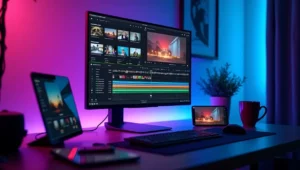How Hard Is Computer Programming to Learn?
Learning computer programming might sound scary at first – but it’s not as hard as you think. Just like learning to ride a bicycle or speak a new language, it takes time, effort, and practice. Some people pick it up fast, others take longer. But with the right mindset and resources, anyone can learn it.
What Makes Computer Programming Seem Hard?
1. New Language, New Rules
Programming is like learning a foreign language – Python, JavaScript, C++, etc. These languages have their own rules (syntax), which can be confusing in the beginning. A missing semicolon or an extra bracket can break your code.
2. Problem-Solving Mindset
Programming is more about solving problems than writing code. It needs logical thinking and patience. You must break a problem into small steps and find smart ways to solve each part. This can feel hard for beginners who aren’t used to thinking this way.
3. Error Messages and Bugs
When you start coding, errors are normal—and frustrating. You’ll often run into bugs or confusing error messages. The key is not to give up. Learning how to debug and search for solutions online is part of the journey.
4. Too Many Tools and Technologies
The tech world changes fast. There are many languages, frameworks, and tools. Beginners often feel lost choosing where to start. Should you learn Python or JavaScript? Web development or data science? Picking one path and sticking to it helps reduce overwhelm.
What Makes It Easier Than You Think?
1. Plenty of Learning Resources
You don’t need a computer science degree. Free tutorials, YouTube videos, online courses (like Codecademy or freeCodeCamp), and interactive platforms make it easier than ever to learn coding at your own pace.
2. Community Support
You’re not alone. Platforms like Stack Overflow, Reddit, and GitHub are full of people ready to help you fix bugs and improve your code. Even professionals ask for help.
3. Visual Feedback and Instant Results
When you write a piece of code and run it, you can instantly see what it does. This real-time feedback loop keeps you motivated and helps you understand what works and what doesn’t.
4. Simple Languages for Beginners
Languages like Python are designed to be simple and readable. You can build your first basic program in minutes, which builds confidence early.
Tips to Make Learning Programming Easier
- Start Small: Begin with basic concepts like variables, loops, and functions. Don’t rush into advanced topics too early.
- Practice Every Day: Consistency matters more than speed. Even 30 minutes a day can lead to solid progress.
- Build Projects: Create something useful – like a calculator, to-do list app, or a personal website. Projects make learning fun and practical.
- Learn by Doing: Reading tutorials is good, but writing code is better. Try things yourself.
- Accept Mistakes: Bugs are normal. Every mistake teaches you something new.
Is Programming Right for You?
If you enjoy solving puzzles, thinking logically, or creating things on a computer, programming could be a perfect match. Even if you’re not “techy,” you can still become a good programmer with time and effort. Many successful developers started from scratch with no technical background.
Conclusion
So, how hard is computer programming to learn? It’s not easy, but it’s definitely doable. It’s challenging at first – but like learning to play a musical instrument or a sport, it becomes easier with practice. The key is to stay curious, keep practicing, and not give up when things get tough. Over time, the confusing code will start making sense, and you’ll be surprised how much you can build with your own hands.
Ready to try it? Start small and take it one step at a time – you’ve got this.




